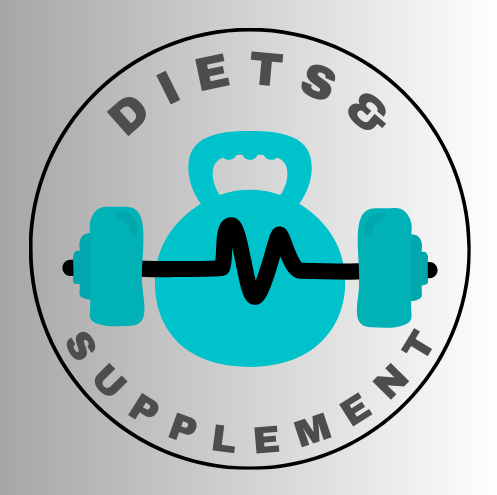 Muscle building isn’t solely about lifting weights; there’s a less-visible part of the equation that’s crucial: biology. Skeletal muscles grow through a process called hypertrophy, which essentially means your muscle fibers are increasing in size. This growth occurs when you subject your muscles to stress, like during a workout, causing tiny microtears in the muscle fibers.
Muscle building isn’t solely about lifting weights; there’s a less-visible part of the equation that’s crucial: biology. Skeletal muscles grow through a process called hypertrophy, which essentially means your muscle fibers are increasing in size. This growth occurs when you subject your muscles to stress, like during a workout, causing tiny microtears in the muscle fibers.
Your body repairs these microtears, and in doing so, builds them back stronger. Key nutrients, namely proteins and their building blocks, amino acids, are vital for this repair process. Without adequate protein, muscle repair is compromised, potentially leading to muscle wasting instead of growth.
Supplements are designed to support this natural muscle growth process. They can deliver nutrients that might be harder to consume in sufficient amounts through food alone. For instance, bodybuilders or athletes might have protein requirements that are challenging to meet with diet alone, and that’s where supplements step in.
The supplement market includes a variety of products, each positioned to aid muscle growth in different ways. Protein powders work by supplying the body with additional protein to help rebuild muscle fibers. Creatine offers energy to fuel muscle contractions, and Branch-Chain Amino Acids (BCAAs) provide specific amino acids that are crucial for muscle synthesis.
=====>Try Time-volume training for muscle growth<=====
It’s essential to approach supplements with a clear understanding of their intended use and how they align with the body’s natural processes. The next step is to delve into one of the most widely used supplements in muscle building: protein.
Examining the Role of Protein Supplements in Muscle Development
I know you’re curious about how that tub of protein powder could help bulk up your muscles. Protein is undeniably vital for muscle repair and growth. It’s the building block of muscle tissue, and after a heavy workout, your muscles are primed for protein to kickstart the repair process.
Protein supplements have carved out a massive niche in the fitness world. Athletes and bodybuilders reach for these powders because they’re a convenient and concentrated source of high-quality protein. This is especially attractive if you’re looking to increase muscle mass or speed up recovery after intense training.
However, the conversation around protein supplements isn’t without its debates. Some experts argue that a well-balanced diet could supply all the necessary protein without the need for extra supplementation. But for those who find it challenging to meet their protein needs through food alone, a supplement might make sense.
If you decide to add a protein supplement to your diet, it’s essential to focus on quality. You’d want to look for products that contain complete proteins – all nine essential amino acids – and minimal filler ingredients. Pay attention to dosing as well; typically, I’d suggest looking at around 20-25 grams of protein post-workout for optimal muscle recovery, though individual needs can vary.
The Power of Creatine: Boosting Muscle Performance and Recovery
You’ve likely heard the buzz about creatine, especially if your fitness goals include increasing muscle mass and strength. But what exactly is it, and how does it work? Creatine is a compound that’s found naturally in your body, primarily in muscle cells. It’s also a popular supplement that’s been extensively studied for its potential to enhance muscle performance and aid recovery.
Here’s the science in simple terms. Creatine helps your muscles produce energy during heavy lifting or intense exercise. When you supplement with creatine, you increase your stores of phosphocreatine. This is a form of stored energy in the cells, as it helps your body produce more of a high-energy molecule called ATP. ATP is often called the body’s energy currency. When you have more ATP, your body can perform better during exercise.
Researchers have confirmed that creatine can improve muscle strength. This boost is due to the supplement’s ability to improve training intensity and quality. Studies show that creatine can significantly increase muscle mass when used in conjunction with resistance exercise. It’s also been shown to help in reducing muscle damage and inflammation, which can speed up recovery times after a workout.
Is it safe? Most research suggests that creatine is safe to use, although it’s always wise to talk to a healthcare provider before starting any new supplement. The typical recommendation is to start with a loading phase of 20 grams of creatine per day, divided into four servings, for 5–7 days. After the loading phase, a maintenance dose of 3–5 grams daily is common. Staying hydrated and educating yourself about the proper use of creatine is crucial.
The information provided here is for your knowledge, but remember, the choice to use supplements should be personalized and deliberate. Before integrating creatine into your regime, it’s paramount to consider your individual health profile, fitness goals, and dietary needs.
Integrating Supplements into Your Fitness Routine Responsibly
I understand the temptation to jump right into using supplements to enhance your workout results. However, it’s crucial to take a step back and consider your overall nutrition and exercise strategy before relying on supplements.
Start by ensuring your diet is rich in whole foods, providing a broad spectrum of vitamins, minerals, and macronutrients. This foundation is vital for your body’s health and can often reduce the need for additional supplementation.
Stay hydrated. Your muscles are about 75% water, and even slight dehydration can impair your performance and recovery.
While supplements can benefit muscle growth, remember they are supplements, not substitutes. They work in conjunction with a well-rounded diet and a structured exercise program.
Watch out for potential side effects such as digestive discomfort or more serious issues like kidney damage with long-term, high-dose protein or creatine usage. Stick to recommended dosages and consider breaks from supplementation to allow your body to reset.
ALWAYS consult with a healthcare provider or a certified nutritionist before starting any supplement regimen, especially if you have underlying health conditions. This step cannot be overemphasized, as it ensures your chosen supplements complement your health rather than compromise it.
By approaching muscle-building supplements with a mindset focused on overall health and performance, and not just quick gains, you set yourself up for sustained progress and long-term well-being.
